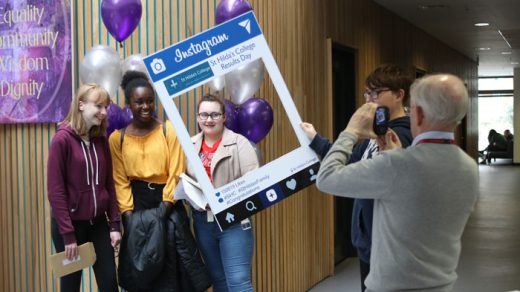‘Will more maths improve society?’ UNESCO says there are other ways

Statistics recently published by UNESCO showed that 771 million adults globally are illiterate, which the organisation says indicates a crisis in foundational learning, literacy and numeracy skills among young learners.
About a third of children and adolescents worldwide cannot read and do basic maths, and it was recently reported that eight million adults in the UK have maths skills lower than those expected of a 9-year-old.
Prime Minister Rishi Sunak recently announced his plan for all students in the UK to study some form of maths until the age of 18.
Dr Anantha Duraiappah, director at UNESCO MGIEP, commented on this for the International Day of Education. She said Mr Sunak’s proposal might alienate some.
Dr Anantha said: “Whilst these figures are alarming and the need for learning core subjects is evident, it is also important to remember that the educational experience is to help develop the human personality.
“Understanding complex algebra might be a necessity in the classroom as a requirement for some professions and needed to develop the personality types and skills of those individuals choosing those professions, yet a balance needs to be struck.”
Dr Anantha also mentioned that there is an increasing trend in mental health issues among the younger generation, with depression and anxiety now common problems for many.
A 2020 report by Mind about secondary education and mental health showed that around 96% of young people who were surveyed in England reported that poor mental health affected their school performance.
Dr Anantha said: “…Education can’t be limited to just academic knowledge but also include social and emotional learning that goes hand in hand towards the building of the personality of individuals.
“Thus, a policy mandating maths as a compulsory subject till the age of 18 may limit the fundamental freedom of pupils whose thoughts and interests lie outside of a numerical subject.
“As a society, if we really want to address the learning crisis we observe in schools, we must focus our attention on building the emotional resilience of our children.”
Dr Anantha said that the solution by UNESCO to unlock a young person’s potential and emotional maturity is to focus on Social Emotional Learning (SEL) to improve maths proficiency, rather than having compulsory maths.
She said: “Studies show that a 10-week intervention of Social Emotional Learning improves academic performance by 7 to 11 points.
“By building attention and emotion regulation competencies, students can face the daily challenges in schools and build their social and emotional competencies.
“Not only does this contribute directly towards the child’s academic proficiency and personality, but it also aids in building a kinder and more empathetic society. We know that SEL in its complete package builds not only the defences against depression but it also builds a growth and ethical mindset.
Dr Anantha added: “Rather than mandating that certain subjects are to be taught up until the age of 18, we should consider the impact it would have if foundational competencies covered academic knowledge in language, maths, history, geography, and others, as well as social and emotional skills such as attention and emotional regulation, empathy and compassion.”




